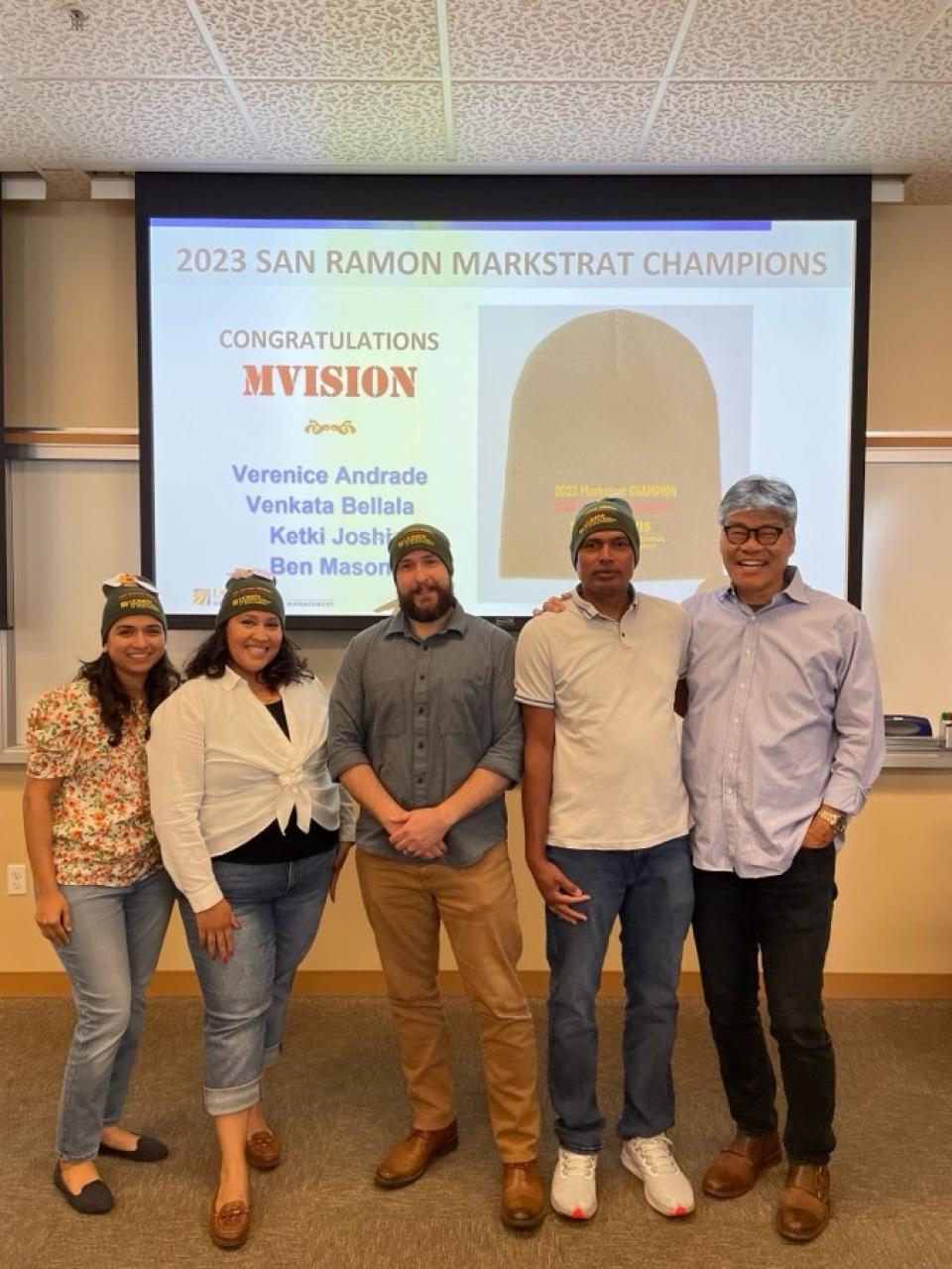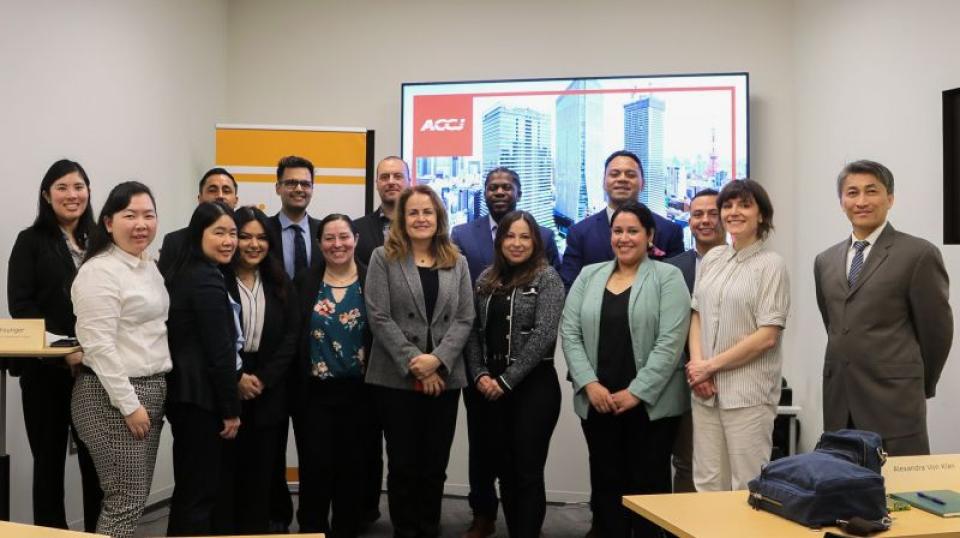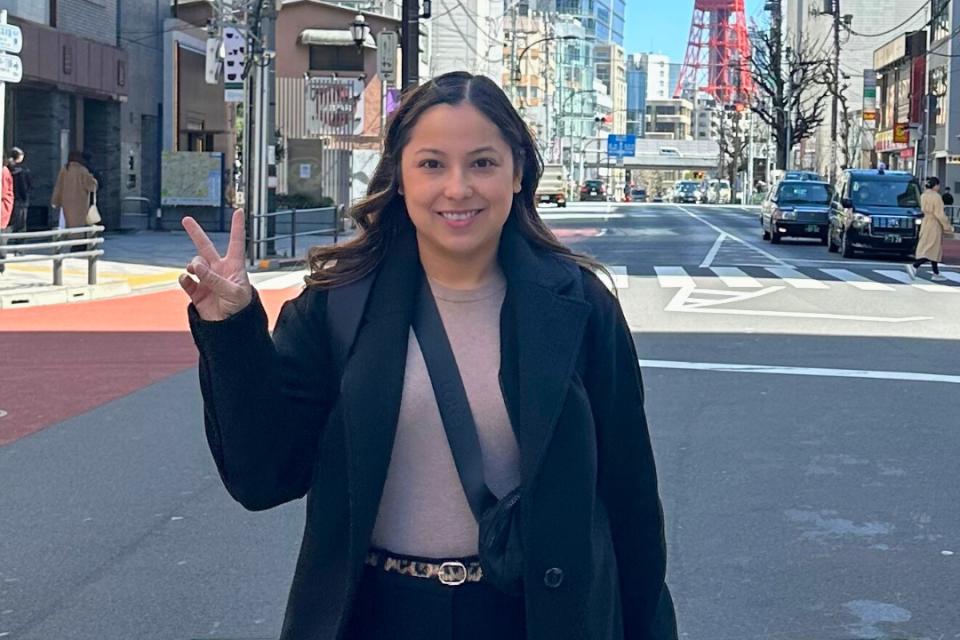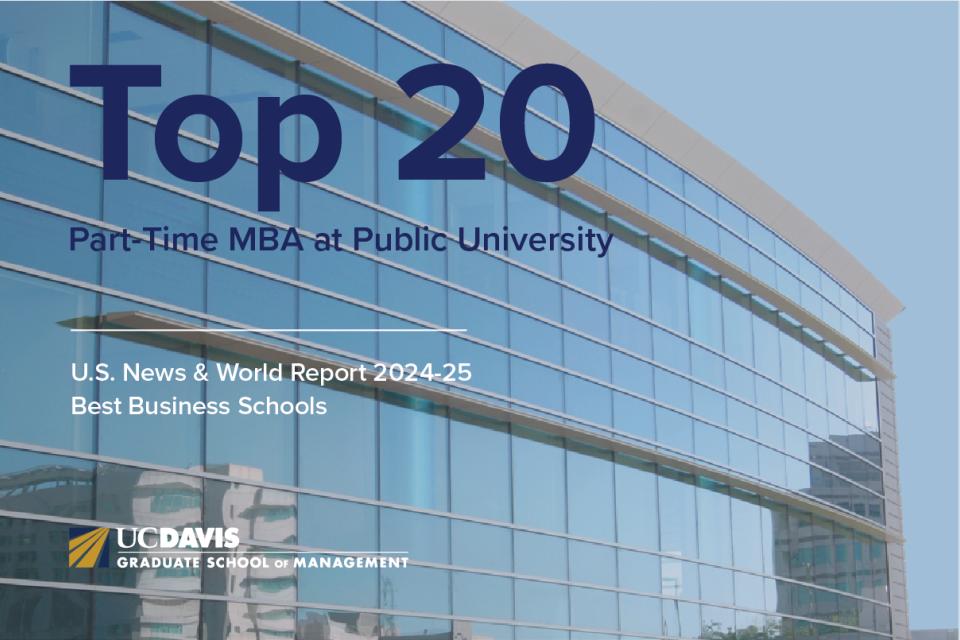How My MBA Beat My Imposter Syndrome
"I learned how to truly advocate for myself, ask bold questions, and take control of my career.”

“Aren’t you coming home after one year? Most students don’t make it because they miss their moms too much and come back.”
Those were the words my high school college counselor said to me when I asked him about a scholarship for UC Berkeley.
Enraged, I looked him straight in the eye and told him I did not see a reality where I did not finish college. I gathered my dignity and left his office. Two months later, I was at Berkeley—my life forever changed.
Growing up, the circumstances in my household forced me to take on the responsibilities of an adult while still a child. I was 10 when my brother was born, and I took on the role of second mother and caretaker to my family. My mother worked the graveyard shift at a tomato processing plant, stretching every dollar to care for my three siblings and me, while my father worked in agriculture to provide for the family.
In my hometown of Mendota, Calif., education was undervalued, and it was expected that women have children, care for our families, and depend on a spouse for survival as soon as graduating high school. So, when I left home for Berkeley to complete my undergrad, I did so knowing that I was defying cultural and familial expectations.
Despite this, my environment instilled in me the foundational values of hard work, humility, perseverance, and civic responsibility.
These are my roots, driving principles, and motivation that led me to the UC Davis Graduate School of Management despite being told I am not smart enough, not connected enough, and not meant to lead my community.
UC Davis has provided me with the tools I lacked to become the professional I am meant to be. I was admitted to the program just as I was about to begin my new job at PG&E just a few months into the pandemic.
For me, it was best to handle only one transition at a time. After speaking with the admissions counselors, I delayed starting the UC Davis Bay Area MBA program for one year and focused on my new job instead.
PG&E to MBA
At PG&E, I practiced my communication skills, networking skills and navigated the technological challenges legacy companies face when transitioning to a fully remote work environment.
As I learned of my new benefits, Sophy Son, former Associate Director of Admissions at the GSM, told me of the employer-sponsor program by PG&E. I am grateful my employer provided some funding to offset the amount of my student loans.
By the time I had applied to Davis, I had faced so much rejection and I did not think I was going to gain admissions. As a first-generation professional, the imposter syndrome was real.
I couldn’t see it at the time, but I had spent 10 years in the workforce as a paralegal, tracking case costs (budgeting), interviewing clients (collecting qualitative data), and consolidating office expenses for a boutique law firm (accounting).
Being a paralegal-turned-MBA was not far-fetched. It was a feat that required some translating because the skills were transferable.

Many of the courses in the Bay Area program have helped me to effectively translate my skills into roles outside of law, including Articulation and Critical Thinking, Personal Branding, New Product Development, and Product Management classes.
The GSM exposed me to amazing opportunities through student-led organizations, such as Women in Leadership, where I served as Outreach Director, and Net Impact, where I participated in numerous case competitions.
UC Davis expertly and compassionately helps student navigate the insurmountable stress of having a full-time job while you complete the program. Unlike my high school college counselor, the career advisors at the GSM truly help students with their cover letters and resumes.
At UC Davis, instead of my differences defying me, they were celebrated. In September 2023, the GSM awarded me a grant to attend the 46th Annual Congressional Hispanic Caucus Institute annual Leadership Conference & Gala during Hispanic Heritage Month as part of the professional development grants. This grant allowed me to be amongst the most influential Latinos in the US impacting policy issues in my community.
Faculty Becoming Mentors
Professors became mentors and are invested in our success. Because the Part-Time MBA program includes working professional, students in my cohort quickly become my colleagues.
Continuing Lecturer Mark Lowe, a supportive mentor, played a pivotal role in my transition to tech industry. His class equipped me with the vocabulary to effectively communicate my transferable skills, facilitating my career pivot.
Dean Rao Unnava is one of the most approachable, respectable, and committed educators I’ve ever known. The Graduate School of Management really did take care of me, eliminating my imposter syndrome for good.
My educational and professional journey had always been defined by overcoming adversity. I never allowed myself to exist in a thriving state.
I jumped at the opportunity to go to Japan in my final quarter as part of the International Study Trip with Professor Joe Chen and 14 other students across different GSM programs.

In addition to all the cutting-edge companies we visited in Japan, I was taken aback by the beauty, organization and kind people.
Every company we visited opened my mind on how to conduct business in a globalized environment. The business meetings were informative and the time spent exploring Tokyo was magical. Despite only being there for eight days, I made the most out of my trip. I took a sushi-making class, did a photo shoot in Shibuya, walked an average of 14,000 daily steps, and tasted the most exquisite seafood.
When I think back to that day in my high school college advisor’s office, I never imagined I’d travel the path I did. I forged my own way, with little resources, and I am on a path to creating a fulfilling career.
Thanks to the lifelong friends and mentors I met at the Graduate School of Management, I am confident in my ability to pivot to a career in tech, where I aim to contribute a Latina perspective on AI and its implications as we continue to develop this technology.


